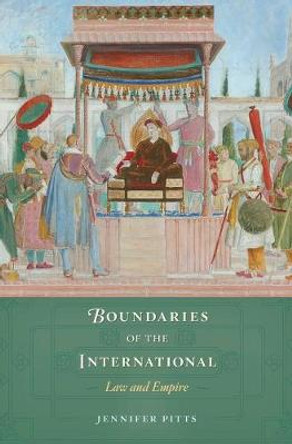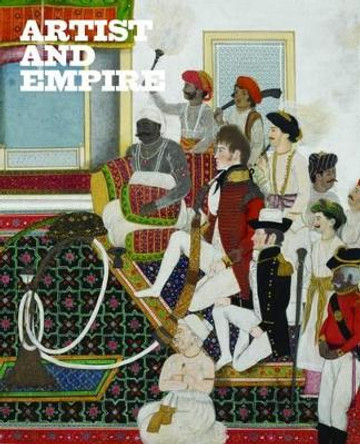Description
Exhibiting depth of research, jargon-free prose, and intellectual acumen on every page, this book is a well-balanced, seamless whole that reveals the impact of empire on the genesis of modern liberalism. It is a work of first importance not only for political theorists but also for readers in philosophy, history, and literature. -- David Armitage, Harvard University, author of "The Ideological Origins of the British Empire" This rich and provocative book examines a subject of great current interest in fields from political theory to international relations to European history. It deserves and should receive a broad audience. The scholarship is both careful and persuasive, and Pitts has an appealing authorial voice. The passion to understand what makes a theorist reject or support foreign conquest drives her narrative and holds the reader's attention as the analysis unfolds. -- Cheryl Welch, Simmons College, author of "Liberty and Utility"
About the Author
Jennifer Pitts is Assistant Professor of Politics at Princeton University. She is the editor and translator of "Alexis de Tocqueville: Writings on Empire and Slavery".
Reviews
Winner of the 2006 First Book Award, Foundations of Political Theory Section of the American Political Science Association One of Choice's Outstanding Academic Titles for 2005 "Jennifer Pitts ... [shows] that support for imperialism is not inherent to liberalism by demonstrating that prominent 18th- and early-19th-century liberals in Britain and France were deeply critical of imperialism... The book is beautifully written, and the scholarship is outstanding."--Choice "Jennifer Pitts helps us to see early-nineteenth-century imperial discourse in a new light by showing more clearly what came before."--Michael Bentley, Victorian Studies "An impressive and even pathbreaking piece of work."--Theodore Koditschek, Journal of Modern History "This book is a brilliantly successful attempt to account for the apparent transition from the fierce, bitter assault on the idea of empire by the writers of the second half of the eighteenth century...to the often self-congratulatory, high-minded endorsement of a new kind of imperial mission less than half a century later... Pitt's finest pages...are on Tocqueville and the Algerian question."--Anthony Pagden, Perspectives on Politics "This is an excellent book about late eighteenth-century and early nineteenth-century liberals and empire. Based on a wide range of material, which Pitts handles impressively, the book begins from a broad but workable definition of liberalism as involving a notion of individual rights and an attempt to widen social sympathies. Pitts deserves much credit for directing attention to liberalism's ability to negotiate difference in a context of empire and for her well-written, inspiring, and thorough analysis."--Casper Sylvest, Political Studies Review "This [is a] thoughtful and engaging book."--John Cramsie, The Historian "Jennifer Pitts ... undermines the case for the reality of anti-imperialism by depicting the rise of 'imperial liberalism' as a major intellectual trend in both Britain and France between c. 1780 and 1850. She does so in a careful, acute and lucid account of the ideas on empire of Adam Smith, Burke, Bentham, the Mills, and de Tocqueville."--Anthony Howe, European History Quarterly
Awards
Winner of American Political Science Association Foundations of Political Theory Section: First Book Award 2006. Short-listed for Choice Magazine Outstanding Reference/Academic Book Award 2005.
Book Information
ISBN 9780691127910
Author Jennifer Pitts
Format Paperback
Page Count 400
Imprint Princeton University Press
Publisher Princeton University Press
Weight(grams) 595g










